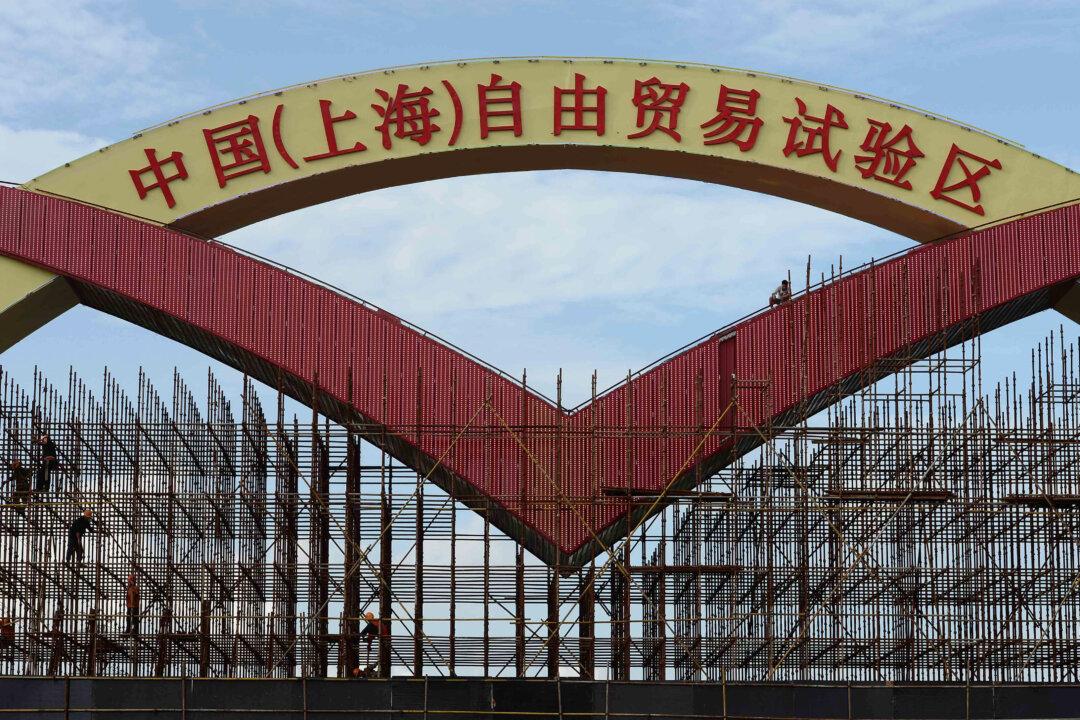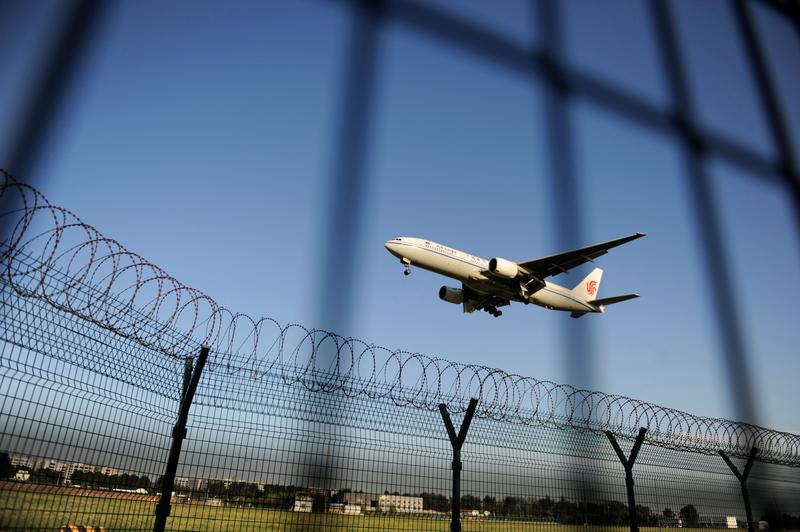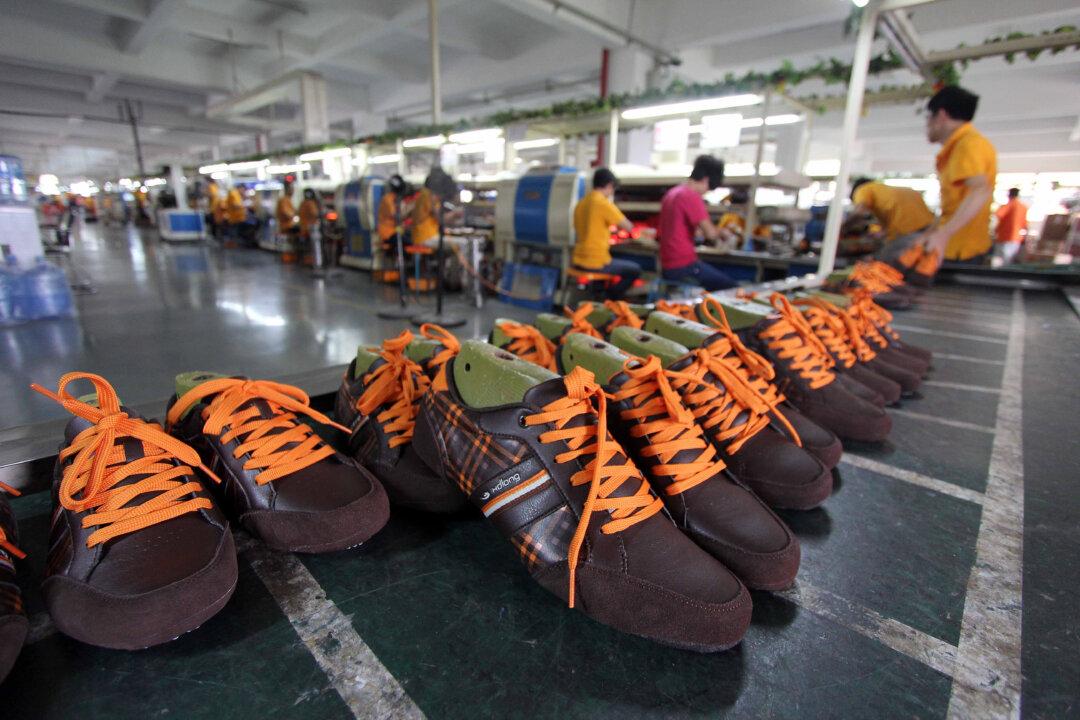It is no secret at all that China’s state wealth and national resources are controlled by a few powerful and rich Chinese Communist Party members who have transferred their wealth to foreign countries. Recently an increasing number of investment banks have been under scrutiny from U.S. authorities for hiring offspring and other relatives of well-connected Chinese politicians and clients to win business in China.
Having foreseen the probe coming, many of China’s elite have already started moving their overseas money back to China through fake trades, which is causing housing prices to go up.
Probe Spreads to Five Banks
China’s powerful elites control the State-Owned Enterprises and too much of the nation’s money. In 2012, state-owned enterprises and affiliated businesses accounted for over half of Chinese economic output and employment.
These elites dominate the process of domestic wealth creation, making China an abnormal market economy. In transferring the huge amount of wealth they have seized out of China, they have adversely affected the global economy.
Foreign governments, including the United States, have been paying heed to this problem. It was reported in November that U.S. regulators are investigating the major investment bank JPMorgan Chase & Co. for hiring well connected Chinese elites, their children, or family relatives as employees or consultants in order to win business deals in China.
According to the Financial Post, “If a bank hires unqualified applicants to help win business from the employees’ relatives it may be construed as a bribe under the U.S. Foreign Corrupt Practices Act.”
Banks have been doing this for years, though. China’s elites use these positions as convenient channels for transferring assets out of China.
The U.S. authorities have recently expanded the probe to other big Wall Street firms. Goldman Sachs Group Inc., Deutsche Bank AG, Citigroup Inc., Morgan Stanley, and Zurich-based Credit Suisse Group AG are facing investigations for their overseas hiring practices. The sons and daughters of China’s elites hired by the investment banks will be scrutinized collectively.
For example, Jiang Zhicheng (Alvin Jiang), a partner of the Boyu Capital Investment Adviser, is the grandson of former Chinese Communist Party leader Jiang Zemin. Boyu has raised substantial money to invest in state financial enterprises like China Investment Corporation, Citic Securities Company Ltd., China Development Bank, and also purchased shares of the Chinese Internet giant Alibaba.
In 2012, America’s DreamWorks Animation set up a joint venture with Chinese backers including Shanghai Alliance Investment to build a Shanghai entertainment company Oriental DreamWorks, and Shanghai Alliance Investment Ltd. It is headed by Jiang Mianheng, Jiang Zemin’s son.
Large Sums Moved Back to China
Facing investigation by U.S. authorities, Party elites made a new investment plan beforehand and started transferring their assets back to China, which explains the large amounts of hot money flooding back to China in recent months.
China’s banks have continuously not had enough cash to cover demand, causing interest rates to rise and creating a great opportunity for hot money to gain speculative profits from interest rate margins.
China’s interbank market is still on edge, and interest rates have been rising to much higher levels compared with last year. The Shibor (Shanghai Interbank Offered Rate) spiked to 3.62 percent on Dec. 9—it was only 2.249 percent Dec. 10, 2012.
The yuan exchange rate for the U.S. dollar reached a record high of 6.0715 on Dec.9. On the same day, the middle rate was 6.1130, a substantial 102 point increase from previous day and set a new record. The suspicion is that yuan to U.S. dollar exchange rate will continue in this cycle.
There are clear signs that hot money is transferring into China through fake trades to create profit from differences in foreign exchange rates and interest rates.
According to China’s central bank monetary balance sheet, reserves surged sharply at the end of October by 449.5 billion yuan, compared to the end of September, the highest increase during a month since January 2008.
Foreign financial institutions are making speculative profits in China because the low interest rates in overseas markets are driving money flow into China where the differences in exchange rate and interest rates create profit, according to Zhao Qingming, an international financial expert and adjunct professor at the School of Banking and Finance of the University of International Business and Economics.
Fake Trades Just a Cover
In November, the export growth and trade surplus were all higher than expected, as speculative hot money played a critical role. On Dec. 8, the Chinese customs department issued data showing the total import-export value reached 2.27 trillion yuan (approximately US$373 billion) in the month of November, and a total of 23.4 trillion yuan (approximately US$3.85 trillion) from January to November. The monthly trade surplus topped 208.9 billion yuan (approximately US$34.4 billion), which was a five-year high.
The trade surplus of over 200 billion yuan (approximately US$33.3 billion) has Beijing worried. The State Administration of Foreign Exchange issued a notice back in May to crack down on fake trade activities.
It issued another notice, “Circular of the State Administration of Foreign Exchange on Issues concerning the Perfection of Foreign Exchange Controls on Trade Financing Business of Banks” on Dec. 6, aiming to curb fake trade financing without an authentic trade background and prevent abnormal cross-border foreign exchange flows.
Many financial analysts believe that the timing of this latest notice was in response to the sharp rise of the funds outstanding for foreign exchange. Simply put, many overseas financial institutes are making quick money with trade as a guise for arbitrage of foreign exchange, resulting in a huge influx of speculative hot money.
It is to be expected that funds outstanding for foreign exchange in the month of November will have exceeded that of October, providing another nudge for ever increasing housing prices.
Hot Money Increases Real Estate Prices
China’s skyrocketing housing prices are driven mainly by the Chinese regime’s policies, which help Communist Party members make huge profits by selling off land and by the investment of speculative hot money.
Foreign currency must be exchanged to the Chinese yuan before it can be used for investment in China. Data from the Central Bank of China shows that at the end of of third quarter in 2013, the funds outstanding for foreign exchange reached 27.51 trillion yuan (approximately US$4.5 trillion).
Zhang Tingbin, founder of CNYUAN Thinktank, said after speculative hot money was converted to the Chinese yuan, it went to the financial institutes first.
Then, the commercial banks would increase their lending efforts, in turn boosting the already high housing price. The relation between the commercial banks and the real estates is that they are connected with wealth investment products and trusts.
Within this model, real estate developers and speculators all get what they want. Speculators get a 5 to 15 percent return, sometimes as high as a 20 percent annual return, with additional profits from the appreciation of the Chinese yuan.
At the same time, local governments reduced the supply of available lands. The resulting higher land price would in turn drive up the housing price.
So in brief, speculators, real estate developers, banks, and local governments are working seamlessly together to raise housing prices, and then pass on the additional costs to the house buyers.



